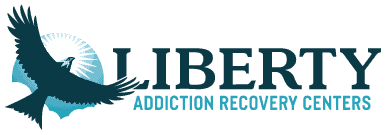FAQ's
How do you help people overcome addiction?
Liberty Addiction and Recovery assist people in the Salt Lake City community to engage in recovery from addiction by helping them to resolve underlying trauma, work through the 12 steps, increase recovery capital, and work on coping with mood disorder symptoms or other underlying issues which contribute to addiction
What do the rehabilitation clinicians actually do to help someone with addiction?
As trained professional clinicians we teach coping skills, resolve underlying trauma, process through emotions, help clients work through the steps and provide feedback which ultimately helps our clients gain valuable insights into the causes and contribute to their substance abuse.
As a client, what is expected of me once treatment begins?
It’s important for our patients and clients to have an expectation of living with structure, routine, and a schedule.
They engage in groups from 9 a.m. – 4 p.m every day with time to work on homework, assignments, improve physical health, and attend recovery meetings n the community.
Clients can expect to hold themselves and others accountable, to be held accountable, and to give and receive feedback within a therapeutic community in order to change behaviors and improve thought processes.
Can medications help me while in treatment?
Medications can be an important part of someone’s recovery.
Clients see Liberty’s medical provider once a week as needed and recommended to help them with psychiatric medications and other medications that can assist with decreasing the risk of relapse.
How do you treat depression and anxiety?
Depression and anxiety can be treated both with medications and therapeutically.
Clients will learn coping skills for mood disorder symptoms and they will be assisted in identifying, processing, and coping with these symptoms in new, healthy ways.
Do you treat the effects of physical, sexual or emotional trauma? How do you do treat or resolve trauma
All of the residential therapists are Eye Movement Desensitization and Reprocessing (EMDR) trained, which is a specialized modality for treating the acute or chronic effects of trauma in a more efficient and effective way. EMDR therapy addresses the fight-or-flight and physical responses and reactions to trauma.
What does the weekly program look like?
Clients have a consistent set of groups. Monday through Friday, engaging in groups from 9-12 and 1:30-4 daily.
Weekends consist of more activities, meditation, cleaning, service, and self-care.
Clients may also have 1-hour visits on the weekends.
Is there down-time to help me relax and also keep fit?
Patients have recreation (rec) time for an hour and fifteen minutes (1 hour 15) five times a week. Patients have down time in the evenings before and after dinner and on the weekends.
It’s important that you feel comfortable and relaxed during your stay, being able to unwind is a crucial part to your recovery process.
So, you’ve completed treatment, what now?
After residential treatment, it is recommended that clients transition to a day treatment (PHP) program in order to continue to provide clients with intensive structure and support in an outpatient setting.
This is a crucial step in helping clients make the transition from a controlled environment to increased freedoms, stressors, and challenges
What is an in-patient and how can it help?
PHP (Partial Hospitalization Program) consists of 20 hours of therapy spread across five days Monday through Friday.
This is an important stepping stone as clients stabilize in early recovery in an outpatient setting. IOP (intensive outpatient program) consists of 9 hours of group therapy three days per week plus one individual therapy session per week.
This benefits those who are working full-time while also receiving intensive support in the evenings while in early recovery.
Groups are facilitated by therapists and support clients in navigating the challenges, stressors, and successes of early recovery.
What is sober living?
Sober living consists of same-sex housing in a neighborhood that provides accountability to people in early recovery.
Sober living typically consists of a nightly curfew and regular drug testing while allowing people the freedom of going to work, having a cell phone, personal transportation, and still attending treatment.
General questions about rehab and the Liberty program
Can I smoke while in Rehabilitation treatment?
Yes, of course. We aren’t task masters, you are able to have 6 smoke breaks a day.
What kind of activities are on offer?
Liberty Addiction and Recovery offers unique and engaging activities that are on offer 1-2 times a week. These activities are led by our professional team and are designed to help our patients relax but also build core skills.
Some of the activities our patients participate in are:
Hiking
Bowling
Volleyball
Minigolf
Aftercare
What level of support is given to those who’ve finished the Liberty program?
Leaving Liberty doesn’t mean leaving our system of support entirely. The support given by the Liberty team is lifelong. All Alumni are part of an ongoing and inclusive program. We aim to break the cycle of recovery and relapse. To prevent possible regression, we’re here for every Alumni whenever they need us.
